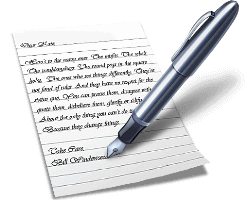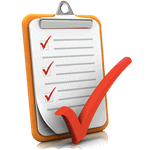 Writing a compelling book review is a skill that marries critical analysis with eloquent expression. For those who seek to delve into this art form with finesse and proficiency, our platform stands as a steadfast beacon of reliable assistance. Welcome to an expert guide on availing of top-tier book review writing services that epitomize professionalism and excellence. In a world brimming with literary treasures, the task of distilling the essence of a book into a coherent and insightful review can be a daunting endeavor. This is where our dedicated experts come to your aid. We understand that a well-written book review not only reflects the nuances of the narrative but also provides a platform for insightful critique, all while maintaining a captivating narrative of its own. Each review is meticulously crafted by individuals well-versed in literature's intricacies, enabling them to unravel layers of meaning and craft astute evaluations. Whether the book belongs to the realms of fiction, non-fiction, academia, or any other genre, our professionals possess the versatility to navigate diverse literary landscapes. Beyond a mere summary, our reviews encapsulate the essence of the book, delving into thematic depth, character dynamics, writing style, and the author's intent. This holistic approach ensures that every aspect is thoughtfully analyzed, resulting in reviews that are both enlightening to the reader and gratifying to the author. With our unwavering commitment to professionalism and a profound appreciation for the written word, we stand ready to provide you with a book review that is, in itself, a work of art.
Writing a compelling book review is a skill that marries critical analysis with eloquent expression. For those who seek to delve into this art form with finesse and proficiency, our platform stands as a steadfast beacon of reliable assistance. Welcome to an expert guide on availing of top-tier book review writing services that epitomize professionalism and excellence. In a world brimming with literary treasures, the task of distilling the essence of a book into a coherent and insightful review can be a daunting endeavor. This is where our dedicated experts come to your aid. We understand that a well-written book review not only reflects the nuances of the narrative but also provides a platform for insightful critique, all while maintaining a captivating narrative of its own. Each review is meticulously crafted by individuals well-versed in literature's intricacies, enabling them to unravel layers of meaning and craft astute evaluations. Whether the book belongs to the realms of fiction, non-fiction, academia, or any other genre, our professionals possess the versatility to navigate diverse literary landscapes. Beyond a mere summary, our reviews encapsulate the essence of the book, delving into thematic depth, character dynamics, writing style, and the author's intent. This holistic approach ensures that every aspect is thoughtfully analyzed, resulting in reviews that are both enlightening to the reader and gratifying to the author. With our unwavering commitment to professionalism and a profound appreciation for the written word, we stand ready to provide you with a book review that is, in itself, a work of art.
Target your audience with our book analysis writing services
Crafting book reviews that effectively target your audience requires a thoughtful approach. We can offer reliable assistance with writing a book review, to help you tailor your book review to specific audiences. Here is how to do it;
- Identify the Target Audience: Determine the demographic and psychographic characteristics of the audience you want to reach. Consider factors like age, gender, interests, reading preferences, and cultural background.
- Understand Genre Preferences: Different audiences have varying genre preferences. Tailor your reviews to the genres your audience is most likely to enjoy.
- Use Appropriate Tone and Language: Adjust the tone and language of your reviews to match the preferences of your target audience.
- Highlight Relevant Themes: Identify themes that resonate with your target audience. If you're reviewing for a tech-savvy audience, focus on books that explore technology, innovation, or futuristic concepts.
- Cater to Emotional Appeal: Understand the emotional triggers of your audience. Highlight aspects of the book that evoke emotions aligned with their interests. If your audience enjoys heartwarming stories, emphasize the emotional journey of the characters.
- Provide Comparative Insights: Draw parallels between the book you're reviewing and other popular works that your audience might be familiar with. This helps them understand the book's uniqueness and relevance.
- Include Personalization: Share personal anecdotes or experiences related to the book that might resonate with your target audience. This creates a sense of connection and relatability.
- Tailor Proper Length and Depth: Adjust the length and depth of your reviews based on your audience's preferences. Some audiences prefer concise summaries, while others seek in-depth analysis.
- Engage with Your Audience: Encourage comments, discussions, and interactions from your audience. Respond to comments and show genuine interest in their perspectives.
- Stay Consistent: Develop a consistent style and format for your reviews. This helps your audience know what to expect and builds familiarity.
Enhance your review by incorporating quality & relevant context
 To elevate the quality and relevance of your review, it's essential to carefully incorporate excerpts that provide insightful context. Quality passages serve as supporting pillars for your critique, and relevance ensures that your arguments remain firmly grounded in the source material. Select excerpts that exemplify the author's key arguments or themes, and align them with the specific points you're critiquing. These well-chosen excerpts offer a tangible basis for your analysis. To enhance the context, introduce each excerpt with a concise explanation of its significance within the source material. This step not only clarifies your intention but also helps readers who may not be familiar with the text. Incorporate diverse quotes from various sections of the source. This not only showcases your comprehensive understanding but also demonstrates that your critique considers the work as a whole. Utilize comparisons among these excerpts to highlight patterns, contradictions, or shifts in the author's stance, adding depth to your analysis. While weaving the extracts into your critique, delve into detailed analysis. Unpack how each substantiates your critique, going beyond surface-level connections. Engage in thought-provoking discussions about the implications of these excerpts and their alignment with your standpoint. Address counterarguments by incorporating phrases that offer differing viewpoints. Skillfully deconstruct these opposing ideas using relevant excerpts, showcasing your ability to critically engage with the source material.
To elevate the quality and relevance of your review, it's essential to carefully incorporate excerpts that provide insightful context. Quality passages serve as supporting pillars for your critique, and relevance ensures that your arguments remain firmly grounded in the source material. Select excerpts that exemplify the author's key arguments or themes, and align them with the specific points you're critiquing. These well-chosen excerpts offer a tangible basis for your analysis. To enhance the context, introduce each excerpt with a concise explanation of its significance within the source material. This step not only clarifies your intention but also helps readers who may not be familiar with the text. Incorporate diverse quotes from various sections of the source. This not only showcases your comprehensive understanding but also demonstrates that your critique considers the work as a whole. Utilize comparisons among these excerpts to highlight patterns, contradictions, or shifts in the author's stance, adding depth to your analysis. While weaving the extracts into your critique, delve into detailed analysis. Unpack how each substantiates your critique, going beyond surface-level connections. Engage in thought-provoking discussions about the implications of these excerpts and their alignment with your standpoint. Address counterarguments by incorporating phrases that offer differing viewpoints. Skillfully deconstruct these opposing ideas using relevant excerpts, showcasing your ability to critically engage with the source material.
How we effectively use excerpts to support your critique
- We choose excerpts that directly relate to the points you're critiquing to provide evidence or examples that strengthen your argument.
- Our concise excerpts capture the essence of your critique to avoid lengthy passages that might dilute your point.
- We introduce each excerpt with a brief explanation while setting the stage for readers who might not be familiar with the source material.
- We use excerpts from different parts of the source to show a well-rounded understanding to demonstrate that your critique is based on a comprehensive analysis.
- We compare and contrast multiple excerpts to highlight inconsistencies or patterns in the source material.
- After presenting the excerpts, we analyze them about your critique to explain how each excerpt supports your point and the implications of these connections.
- We address potential counterarguments using excerpts while presenting opposing views and then dismantle them using the excerpts as evidence.
- We ensure the excerpts you choose are clear and easily understandable to avoid overly complex passages that might confuse your readers.
- We organize the excerpts in a logical sequence. We build upon one another to create a coherent and persuasive critique.
Writing a persuasive review becomes an enriching experience when guided by reliable assistance. Navigating the intricate landscape of literary critique requires more than just summarizing content; it demands a nuanced understanding of the author's intent, thematic depth, and the book's impact on readers. Our expert guide not only simplifies this process but also enhances the reviewer's ability to dissect and appreciate the nuances that make a book unique. Through this expertly crafted roadmap, writers embarking on the path of book review composition are empowered to transcend the surface and delve into the layers that constitute literary excellence. The guidance we provide not only hones the art of constructing coherent and insightful evaluations but also nurtures the growth of analytical thinking and communication skills. Furthermore, the reliability of our assistance cannot be understated. The judicious insights offered by seasoned experts illuminate blind spots and facilitate the creation of reviews that are not only informative but also engaging. The assurance of accurate, well-structured, and well-informed reviews instills confidence in writers, ensuring their voices resonate with authority in the literary discourse. In a world where opinions are abundant, our guidance becomes invaluable. Thus, the collaboration between aspiring reviewers and expert mentors not only shapes skillful critics but also contributes to the perpetuation of literary appreciation, enriching the literary world as a whole.
How to Write an Engaging Book Analysis | Qualified Writers
 In the empire of literature, where every page carries a piece of the human experience, the ability to dissect and analyze a book's essence becomes a captivating skill. As a reader, you often find yourself lost in the intricate tapestry of narratives, characters, and themes woven by authors. Yet, when tasked with unraveling the layers of meaning hidden within those pages, you may find yourself grappling for insight and coherence. This is where the art of writing an engaging book analysis comes into play, a craft that demands not only a profound understanding of the literary work but also the skill to articulate thoughts with eloquence and precision. We recognize the unique challenge posed by book analyses and the desire to assist those seeking to master this art. With a team of adept wordsmiths and literature enthusiasts, we offer a guiding hand to help with writing an exceptional book review that transcends the ordinary. Whether you're a student aiming to decipher the nuances of a classic novel, a book club member looking to stimulate insightful discussions, or a literary aficionado eager to share your perspective, our services are tailored to cater to your specific needs. Our approach revolves around a deep-seated appreciation for literature's diverse forms and genres. We believe that a compelling book analysis delves beyond mere summarization, delving into the thematic undercurrents, character motivations, and the author's stylistic choices. Our experienced writers possess a keen eye for these intricacies, enabling them to unravel the core of a literary work and present it in an engaging and thought-provoking manner. In this pursuit of literary excellence, we stand as your partners, ready to transform your reading experiences into articulate analyses that captivate and inspire.
In the empire of literature, where every page carries a piece of the human experience, the ability to dissect and analyze a book's essence becomes a captivating skill. As a reader, you often find yourself lost in the intricate tapestry of narratives, characters, and themes woven by authors. Yet, when tasked with unraveling the layers of meaning hidden within those pages, you may find yourself grappling for insight and coherence. This is where the art of writing an engaging book analysis comes into play, a craft that demands not only a profound understanding of the literary work but also the skill to articulate thoughts with eloquence and precision. We recognize the unique challenge posed by book analyses and the desire to assist those seeking to master this art. With a team of adept wordsmiths and literature enthusiasts, we offer a guiding hand to help with writing an exceptional book review that transcends the ordinary. Whether you're a student aiming to decipher the nuances of a classic novel, a book club member looking to stimulate insightful discussions, or a literary aficionado eager to share your perspective, our services are tailored to cater to your specific needs. Our approach revolves around a deep-seated appreciation for literature's diverse forms and genres. We believe that a compelling book analysis delves beyond mere summarization, delving into the thematic undercurrents, character motivations, and the author's stylistic choices. Our experienced writers possess a keen eye for these intricacies, enabling them to unravel the core of a literary work and present it in an engaging and thought-provoking manner. In this pursuit of literary excellence, we stand as your partners, ready to transform your reading experiences into articulate analyses that captivate and inspire.
Our expert book review writing approach you can consider;
Here is how to write an engaging book analysis with our help
- Read the Book: The first step in the process is reading the book. We can assign you a reviewer to read the book and provide a detailed analysis of its content. The reviewer will read the book carefully, taking notes on the themes, characters, writing style, and any other important aspects of the book.
- Research the Author: We can also help to research the author of the book. This will provide us with additional information that they can use to contextualize the book and understand its themes and writing style. We will look for information about the author’s background, other books they have written, and any interviews or articles they have published.
- Write the Review: After reading the book and researching the author, we will begin writing the review. The review will typically be several paragraphs long and will include a summary of the book’s content, an analysis of its themes and writing style, and a recommendation for whether or not the book is worth reading. We will also include your personal opinion of the book and any areas you believe could be improved.
- Edit and Proofread: Once the review has been written, it should be edited and proofread to ensure that it is free from errors and flows well. We may also use software to check the review for plagiarism to ensure that it is original content.
- Publish the Review: Once we have edited and proofread, it will be published at the right venue. Customers will be able to read the review and use it to make an informed decision about whether or not they want to purchase the book.
What to avoid when writing a review to ensure accuracy
When writing a review, there are several pitfalls to avoid to ensure your review remains insightful and engaging. First, steer clear of excessive plot summary. While a brief overview is necessary, excessive retelling of the story can spoil the reading experience for others. Instead, focus on analyzing themes, characters, and the author's writing style. Also, avoid personal biases or unrelated anecdotes. A review should address the book's merits rather than your personal preferences or unrelated stories. Be objective and constructive in your critique. More so, don't resort to vague statements like "I loved it" or "It was terrible." Support your opinions with specific examples from the book to provide readers with a clear understanding of your viewpoint. Furthermore, avoid overly negative tones. Constructive criticism is valuable, but excessive negativity can overshadow the book's potential strengths. Needless to say, refrain from revealing major plot twists or spoilers without proper warnings. Respect other readers' experiences by giving them the chance to enjoy the story without key details being prematurely disclosed. In essence, a successful review should be a balance of concise summary, thoughtful analysis, and respectful consideration of potential readers' experiences.
 The guidance we provide encapsulates the fundamental elements necessary for a comprehensive and compelling literary dissection. Through this guide, aspiring analysts can understand that an impactful analysis transcends the mere recounting of plot points; it delves into the intricate layers of character development, thematic nuances, and the author's stylistic choices. The emphasis on formulating a clear and concise thesis early on underscores the significance of a structured approach, one that guides the reader through a coherent exploration of the book's depths. Furthermore, the recognition of the reader's subjectivity, as highlighted in the guide, ensures that the analysis remains open to diverse interpretations. This acknowledgment fosters a space for dialogue, inviting others to engage and share their perspectives, enriching the discourse surrounding the literary work. Our insights offer a roadmap to transcend the ordinary and delve into the extraordinary realm of book analysis. By amalgamating meticulous analysis with a keen understanding of literary elements, you can unlock the latent power of words and ideas. Ultimately, the journey of writing an engaging book analysis outlined here is not just about dissecting books, but about connecting with the very essence of human expression.
The guidance we provide encapsulates the fundamental elements necessary for a comprehensive and compelling literary dissection. Through this guide, aspiring analysts can understand that an impactful analysis transcends the mere recounting of plot points; it delves into the intricate layers of character development, thematic nuances, and the author's stylistic choices. The emphasis on formulating a clear and concise thesis early on underscores the significance of a structured approach, one that guides the reader through a coherent exploration of the book's depths. Furthermore, the recognition of the reader's subjectivity, as highlighted in the guide, ensures that the analysis remains open to diverse interpretations. This acknowledgment fosters a space for dialogue, inviting others to engage and share their perspectives, enriching the discourse surrounding the literary work. Our insights offer a roadmap to transcend the ordinary and delve into the extraordinary realm of book analysis. By amalgamating meticulous analysis with a keen understanding of literary elements, you can unlock the latent power of words and ideas. Ultimately, the journey of writing an engaging book analysis outlined here is not just about dissecting books, but about connecting with the very essence of human expression.




 In the captivating realm of literature, every book is a gateway to a world of imagination and enlightenment. As literary enthusiasts, we understand the significance of a well-crafted book review in not only capturing the essence of a story but also guiding others toward literary treasures. We are dedicated to providing you with original and insightful book review content that brings literature to life. We take pride in offering a service tailored to bookworms, academics, and anyone who appreciates the magic woven within the pages of a book. What sets us apart is our team of
In the captivating realm of literature, every book is a gateway to a world of imagination and enlightenment. As literary enthusiasts, we understand the significance of a well-crafted book review in not only capturing the essence of a story but also guiding others toward literary treasures. We are dedicated to providing you with original and insightful book review content that brings literature to life. We take pride in offering a service tailored to bookworms, academics, and anyone who appreciates the magic woven within the pages of a book. What sets us apart is our team of  The journey through the realms of literature is a wondrous one, often enriched by sharing our perspectives and interpretations. With our commitment to delivering authentic and engaging book reviews, we not only provide a platform for readers to connect with literature but also ensure that each review is a unique creation, free from plagiarism and clichés. In a world inundated with generic content, the significance of originality cannot be overstated. We recognize this importance and go above and beyond to craft reviews that capture the essence of a book, diving deep into its themes, characters, and literary nuances. This dedication not only benefits readers seeking reliable insights but also authors who deserve thoughtful critiques of their work. In the realm of literary analysis, authenticity, and creativity reign supreme. Our commitment to producing genuine content showcases our respect for both literature and its consumers. By choosing us, you can embrace the true spirit of literary exploration and contribute to the preservation of insightful discourse in the world of books. So, for those who seek reviews that resonate, captivate, and stimulate, we stand as the ultimate destination.
The journey through the realms of literature is a wondrous one, often enriched by sharing our perspectives and interpretations. With our commitment to delivering authentic and engaging book reviews, we not only provide a platform for readers to connect with literature but also ensure that each review is a unique creation, free from plagiarism and clichés. In a world inundated with generic content, the significance of originality cannot be overstated. We recognize this importance and go above and beyond to craft reviews that capture the essence of a book, diving deep into its themes, characters, and literary nuances. This dedication not only benefits readers seeking reliable insights but also authors who deserve thoughtful critiques of their work. In the realm of literary analysis, authenticity, and creativity reign supreme. Our commitment to producing genuine content showcases our respect for both literature and its consumers. By choosing us, you can embrace the true spirit of literary exploration and contribute to the preservation of insightful discourse in the world of books. So, for those who seek reviews that resonate, captivate, and stimulate, we stand as the ultimate destination.